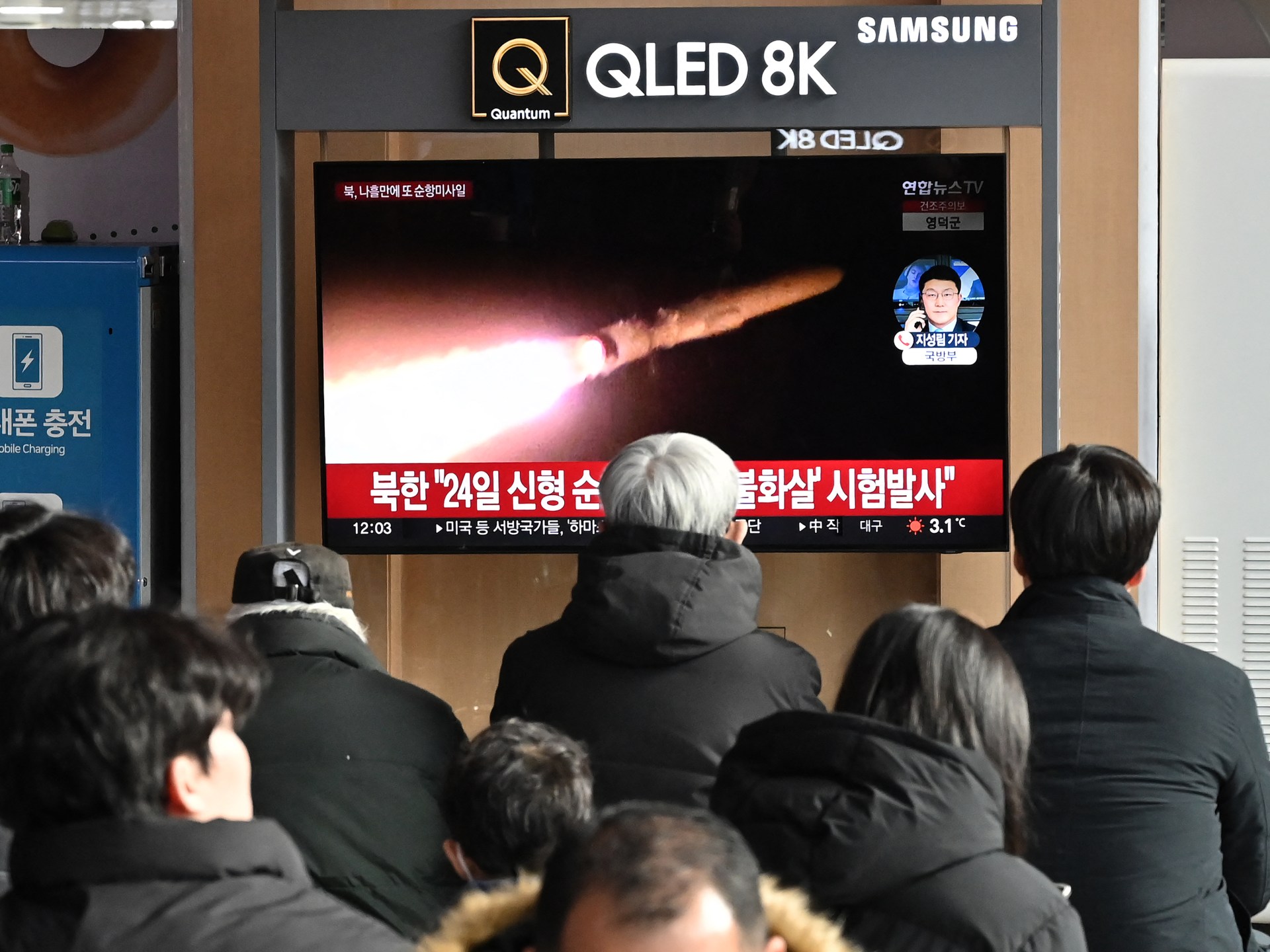
Missile launches come days after Pyongyang announced test of the ‘Pulhwasal-3-31’ strategic cruise missile.
North Korea has fired several cruise missiles off its east coast, South Korean military officials said, continuing a streak of weapons tests that have drawn condemnation from the United States, South Korea and Japan.
The missile launches follow North Korea’s test launch on Wednesday of the strategic cruise missile “Pulhwasal-3-31”, which Pyongyang has suggested is capable of carrying a nuclear warhead.
South Korea’s Joint Chiefs of Staff (JCS) said in a statement on Sunday that it detected several missiles over waters near the North Korean port of Sinpo, where Pyongyang operates a shipyard that manufactures naval assets including missile-firing submarines.
“While strengthening surveillance and vigilance, our military is cooperating closely with the United States and monitoring additional signs and activities from North Korea,” the JCS said.
Pyongyang has ramped up weapons tests in recent weeks, including the launches of a purported “underwater nuclear weapon system” and a solid-fuelled hypersonic ballistic missile.
While North Korea is not banned from testing cruise missiles under UN sanctions, which prohibit more sophisticated ballistic technology, the launches are likely to inflame tensions in Pyongyang’s already strained relations with Washington, Seoul and Tokyo.
Despite international sanctions and censure, Kim has made major strides in advancing his country’s illicit ballistic missile programme, which analysts say has been bolstered by cooperation with Russia.
North Korean leader Kim Jong Un earlier this month said that South Korea was his country’s “principal enemy” and that peaceful reunification of the Korean Peninsula was no longer possible.
The US, South Korea and Japan have responded to Pyongyang’s tests by carrying out expanded joint military exercises, which Kim has cast as rehearsals for an invasion.
North Korea’s state-run Korean Central News Agency on Sunday condemned the drills, vowing “merciless” consequences and warning that the country was “fully prepared for a deadly war”.








![How To Grow Healthy Vegetables At Home To Add At Your Diet [Video]](https://naijatipsland.com/wp-content/uploads/2024/11/466793198_528225756695676_4492890222511616285_n-100x100.jpg)

